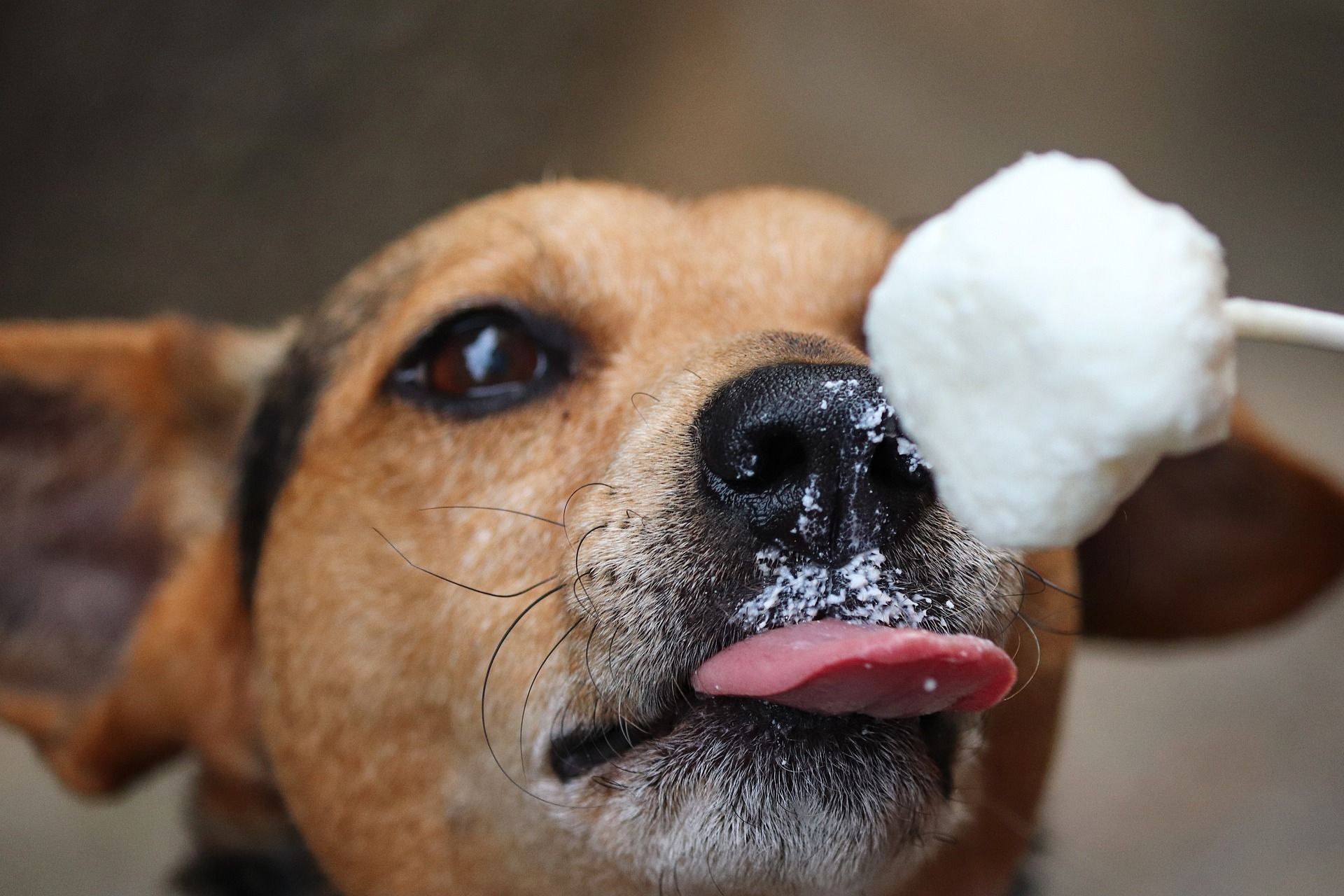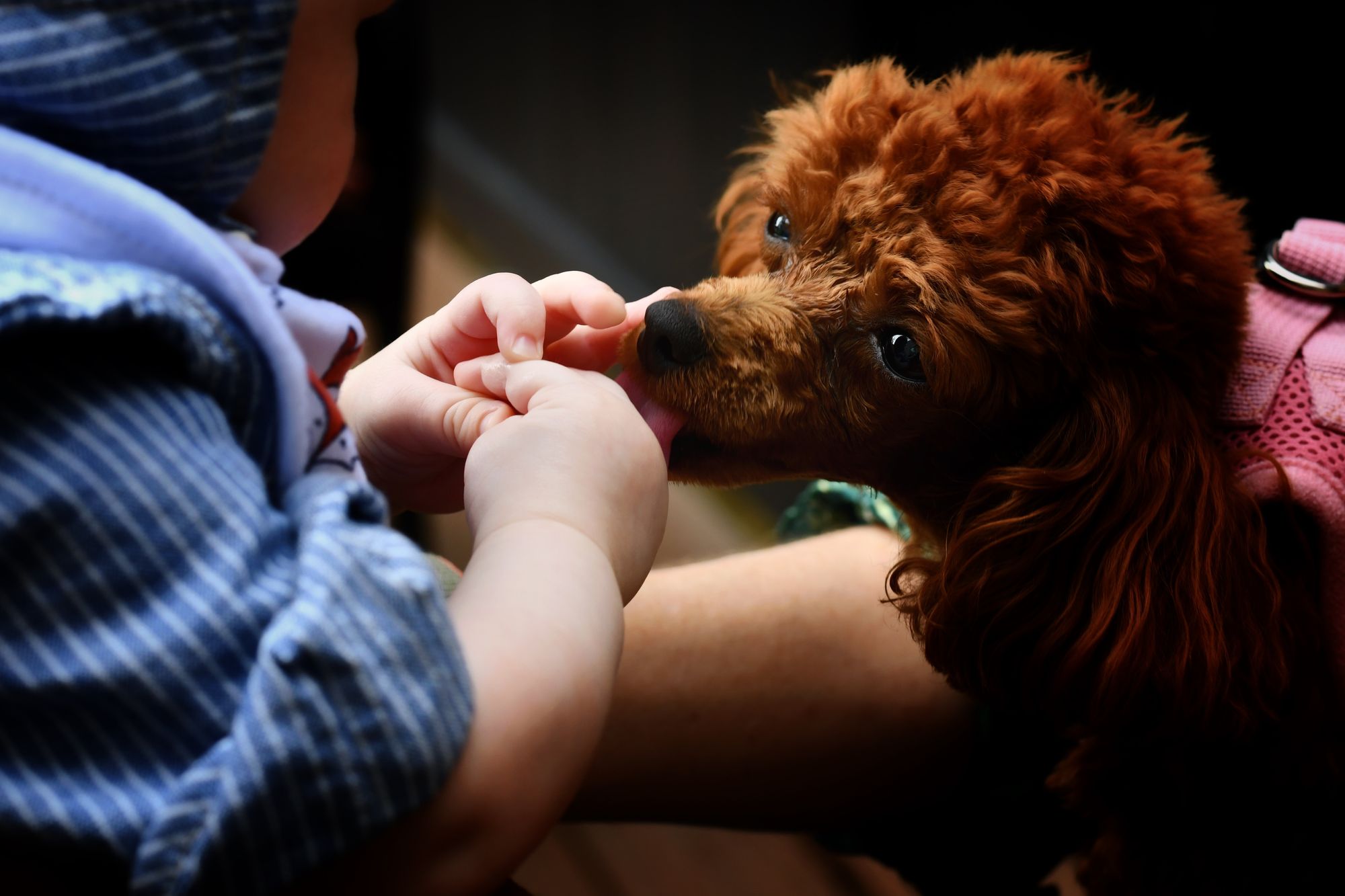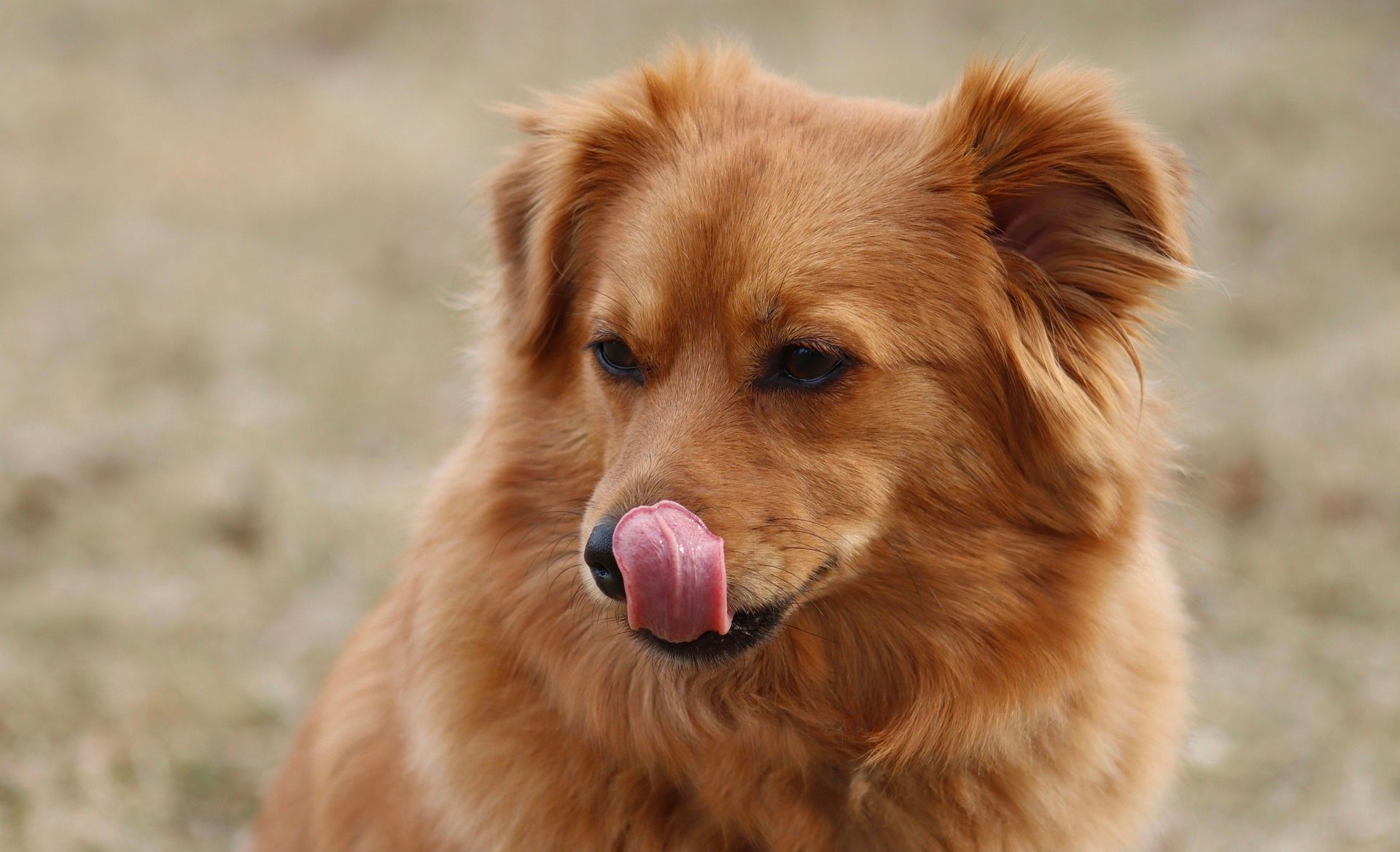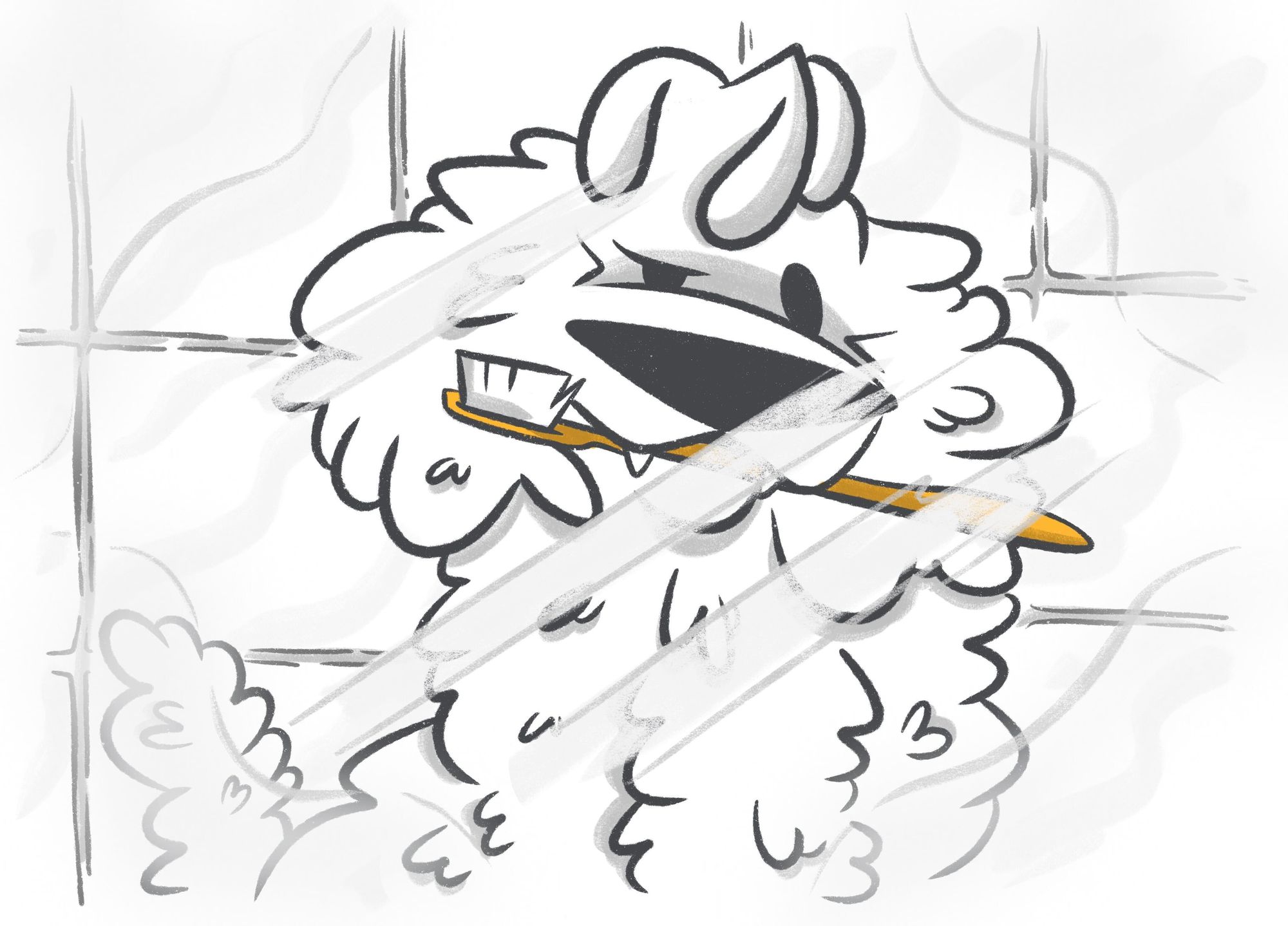Every time I tut at my mother for kissing George the bulldog on the mouth, she tells me: "A dog's mouth is cleaner than a human mouth." But have you ever wondered what's in and around your pooch's mouth when you kiss them and let them lick you?
Why do they say dogs' mouths are cleaner than humans? Is it true? Perhaps it's about time we found out.
Content:
- Is a Dog's Mouth Cleaner Than a Human's?
- How Important is Dog's Oral Hygiene?
- What Diseases Can You Get from Dog Saliva?
- Conclusion: Dog's Mouth is Not Cleaner Than a Human's
- FAQ
Is a Dog's Mouth Cleaner Than a Human's?

Before we get into which mouth is cleaner, it's important to consider one incredibly important factor:
A dog's mouth and a human mouth are not the same.
They aren't built the same, they don't chew and swallow the same foods, and they contain different families of bacteria and other microorganisms. One great example of the difference is with plaque and other periodontal conditions. They are the same condition in both humans and canines, but the bacteria that causes them is different.
Read more: Does Your Dog's Breath Stink?
Are Dogs Mouths Clean?
Dogs’ mouths are no more clean than human mouths are, nor are they dirtier. There are some overlapping bacterial families in the 600–700 found in both dog and human mouths, but for the most part, they're different.
Is a Dog’s Saliva Clean?
If you have an allergy to dog saliva, which is possible, then no, it technically would not be ‘clean’ for you. You would have an allergic reaction. This can range from a bit of itching and a rash to a full-blown anaphylactic shock.
It is also not a good idea to let your pooch lick you in a place where you have open or healing wounds. They will pick up bacteria that doesn’t belong in the mouth as they go around your home, garden, and other places. For your own safety, keep wounds and pups apart.
How Important is a Dog's Oral Hygiene?
Dogs can't brush their own teeth, floss, or gargle with mouthwash, so all that responsibility falls on you, the pup-parent.
As well as keeping your dog fit and healthy and allowing them to eat, drink, and play without any problems, keeping up with your dog's oral hygiene routine is vital to ensuring you aren't faced with unexpected, costly vet bills.
Thankfully, with Petcube's Emergency Vet Fund, you can be covered for pet emergencies up to the value of $3,000 per year. It costs less than $1 per day, and covers up to six of your furry friends for those unexpected oh no moments. Along with an interactive pet camera, there’s no pet-problem you won’t be able to solve!
Read more: Why Do Dogs Drool?
Poor oral hygiene can lead to bad breath in dogs as well as broken, infected (dog tooth abscess), missing, or damaged teeth. In turn, this can lead to eating and drinking less, then to dehydration, malnutrition, and more.
Your poor pooch may need tooth extraction, other surgical treatments, antibiotics, pain relief medication, professional dog tooth cleaning, and more. These medical procedures and other things will, of course, cost you.
A lack of an oral hygiene routine will also affect the health of your dog in other, potentially more serious ways. Oral conditions often go hand-in-hand with increased risks of other problems, such as the link between periodontal disease and the heart infection endocarditis.
What Diseases Can You Get From Dog Saliva?

There is good news and bad news here. Let's start with the good.
Very few disease-causing pathogens that can be found in the mouth of your pet are classed as 'zoonotic' pathogens. Zoonotic diseases are ones that can be passed from animal to human.
Now it's time for the bad news. Salmonellosis, also commonly referred to as food poisoning, is one of a few diseases that humans can get from dog saliva. If a dog ingests salmonella bacteria and becomes ill, the rest of your household can also contract it as a result. The same applies to E. coli.
Other examples of zoonotic diseases you can get from dog mouth bacteria include:
- Rabies (in affected countries).
- Infection from Capnocytophaga, which can lead to endocarditis, abscesses, and potentially fatal sepsis in those with weakened immune systems.
- COVID-19, which some experts believe can be passed from humans to both dogs and cats.
- Pasteurella canis is a type of bacteria that can cause infections in human skin if it is bitten by a dog or scratched and then drooled on. Again, it is more dangerous for the immunocompromised.
It is also wise to remember that some dogs clean themselves down there with their tongues. For that reason, you may also need to consider feces-borne disease-causing pathogens.
Can Humans Get Worms from Dogs Licking Them?
This is not believed to be possible because humans and canines get different types of worms. This is in the same way that different types of plaque-causing bacteria will individually affect the two species.
Can You Get an Eye Infection From a Dog Lick?
This is actually a sign of love and adoration from your pampered pooch, but you shouldn’t encourage it. The eyes are very delicate and susceptible to damage, and the tongue and saliva of a dog contain hundreds of viruses, bacteria, and other disease-causing pathogens that could, as you might have guessed, cause disease.
Read more: Gingivitis and Dental Diseases in Dogs: Symptoms, Treatments & More
Conclusion: a Dog's Mouth is Not Cleaner Than a Human's

Despite what you might think, a dog's mouth is NOT cleaner than a human's. Nor is a human's mouth cleaner than a dog's mouth. They both contain a plethora of flora, they're just different. The myth that dogs’ mouths are cleaner than humans is just that: a myth.
In essence, dog mouths and human mouths are just as dirty as each other! If you wouldn't let another human kiss you, perhaps you wouldn't want to let a dog kiss you?
It all comes down to personal preference, of course... but do you pucker up for your pooch?
FAQ
Is bad breath in dogs a sign of illness?
Yes, bad breath can be a sign of illness, but it could also be a sign that you need to clean your pup's teeth, or that they've just eaten something particularly stinky. If you're not sure which applies, seek medical advice before taking any action.
Do dog licks heal human wounds?
This might be a bit of an urban legend, but it’s not true. Even worse than that: it might be dangerous! If you are immunocompromised or have other serious health conditions, do not let a dog get near your wounds.
Was this article helpful?
Help us make our articles even better









